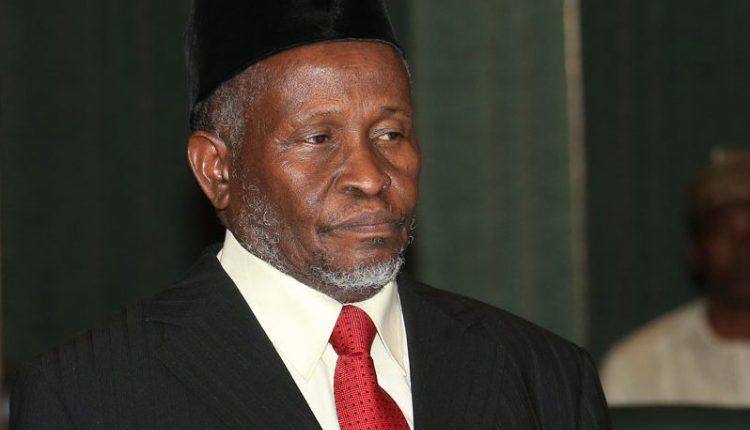News
Crisis looms as CJN’s tenure ends in three weeks

The nation may be plunged into a constitutional crisis in about three weeks as the tenure of the acting Chief Justice of Nigeria, Justice Muhammad Tanko, comes to an end. Muhammad was inaugurated by President Muhammadu Buhari on January 25, 2019 following an order by the Code of Conduct Tribunal that the substantive CJN, Justice Walter Onnoghen, be suspended and the next in line of seniority, be sworn in. However, the constitution states that the President cannot re-appoint an acting CJN unless on the recommendation of the National Judicial Council.
Section 231(4) and (5) states, “If the office of Chief Justice of Nigeria is vacant or if the person holding the office is for any reason unable to perform the functions of the office, then until a person has been appointed to and has assumed the functions of that office, or until the person holding has resumed those functions, the President shall appoint the most senior Justice of the Supreme Court to perform those functions.
“Except on the recommendation of the National Judicial Council, an appointment pursuant to the provisions of subsection (4) of this section shall cease to have effect after the expiration of three months from the date of such appointment, and the President shall not re-appointment a person whose appointment has lapsed.”
Onnoghen and Muhammad are facing a probe by the NJC, the body responsible for the discipline and appointment of judges. While Onnoghen was given a query by the NJC to respond to allegations on why he failed to declare some of his assets as required by law, the acting CJN was asked to respond to a query on why he allowed himself to be sworn in by Buhari without the recommendation of the NJC as stipulated by the constitution. Onnoghen has challenged his suspension before the Court of Appeal but the appellate court has withheld judgment for unknown reasons while the case before the CCT has been given an accelerated hearing.
Buhari will only be able to extend Justice Muhammad’s tenure if the NJC sends his name to the President for confirmation. The President will subsequently be expected to send his name to the Senate for confirmation. However, the current Senate, led by Senate President Bukola Saraki, has been at loggerheads with the executive branch.
The upper chamber of the National Assembly harshly criticised Buhari for suspending Onnoghen and had even threatened to drag the executive arm of government to the Supreme Court. Reliable sources in the Presidency feared that if Buhari nominates Muhammad as the CJN to the Senate, the current set of lawmakers would likely reject his nomination.
The current Senate will expire in June, and Saraki, who lost re-election, will not be part of the 9th Senate. Speaking with our correspondent on Saturday, however, Chief Robert Clarke (SAN) said it was too early to speculate as the NJC still had three weeks. Clarke said the constitution is clear that the appointment of judges should be on the basis of seniority and since Onnoghen remained under suspension, the NJC would have to extend the tenure of Justice Muhammad, who is also being probed by the council.
He said, “The Constitution will not allow a vacuum in any instance. It says the most senior judge will take over as acting CJN. After three months, the NJC can recommend another three months. He has no definitive tenure. It only said if the position is not vacant, the most senior must act. “The NJC can recommend Tanko (Muhammad) again. I know the NJC will do the right thing. They know more than you and I, they know what to do. The constitution says the most senior. So, the NJC cannot recommend just anyone. Let’s not speculate.” Also speaking with our correspondent, human rights lawyer, Jiti Ogunye, believed there would be no constitutional crisis because Nigeria always found its way out of such issues.
Ogunye added, “The point is when that time comes, a way would be found. The NJC that is still grappling with the issue of the treatment meted to Onnoghen, which is still considering petitions against him and that of the acting CJN for the fact that he presented himself to be appointed by the President, is that the same NJC that will have time that will be considering what will happen to him in three weeks?”




 Davido's Net Worth & Lifestyle
Davido's Net Worth & Lifestyle 
